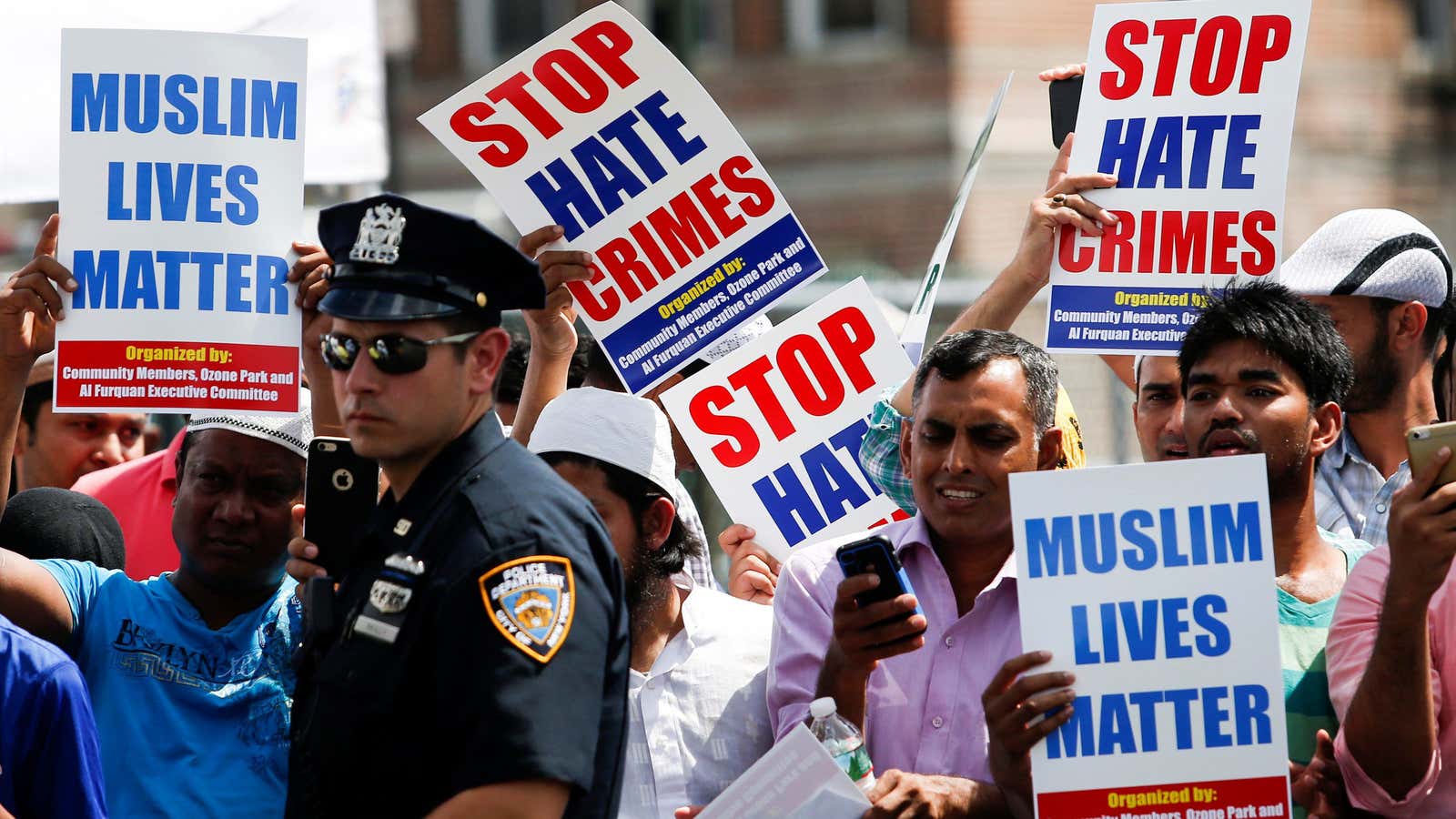Shaun King, a reporter for the New York Daily News, makes his living documenting social injustice around the US. As a result, he receives anywhere between 150 and 200 emails a day with tips, suggestions and personal stories.
But in the hours since Donald Trump’s victory in the US presidential election was announced early Wednesday (Nov. 9) morning, King’s inbox has exploded with reports of hate crimes and other hate-speech incidents. King attributes this apparent rise to Trump supporters unleashing their vitriol. He has been sharing anecdotes on Twitter and Facebook, where many of his posts have gone viral.
“I get a ton of email anyway, but they’re turbocharged since the morning after the election,” King says in an interview with Quartz. “The more I started sharing them, the more people started saying, ‘If you need your story told, this is who you should send it to.'”
King’s timeline paints an ugly picture of a torrent of frenzied hate in the immediate aftermath of the election. Few minorities are spared: African Americans, gays, Jews, Latinos and Muslims are all targets in the stories King has posted. Muslim women have described having their head scarves yanked off. Photos reveal hate speech scrawled in public spaces and schools. Victims describe harassment or slurs shouted at them as they conduct their daily business.
Quartz has not been able to verify the reports. King, who has nearly 450,000 Twitter followers, says he does his best to verify each incident by looking for photos, checking whether the victims shared them with their own friends on social media, or finding other documentation or witnesses.
“Far and away, 98% of them are painfully true and come from people who are connected within three or four degrees of separation and gave me enough [evidence],” he says. “And by and large, I trust victims. I start out from the vantage point of believing you until I’m proven wrong. Part of my calling in life is to be an advocate for victims.”
He adds that the stories come from a variety of places. “It’s happening everywhere from California to New York, not just in places like the deep South,” he says. “We are in a state of national emergency.”
“Without me sharing these stories, most would probably stay in a closed network,” says King, adding that there isn’t a central place to report such incidents unless law enforcement gets involved. The lack of such a database makes it difficult to establish if hate speech and hate crimes are on the actually on the rise or if more people are simply coming forward to tell their stories post-election.
King says he hopes someone launches a central database to track such events in order to identify trends and demonstrate where and when these incidents are happening. Until then, King says he’ll keep documenting everything he can.
“Part of my inspiration for sharing these is that for some of these people, it’s all the justice they’ll get, seeing their story told publicly before a large audience,” he says. “It helps them see that somebody else cares, somebody else says it’s wrong.”
